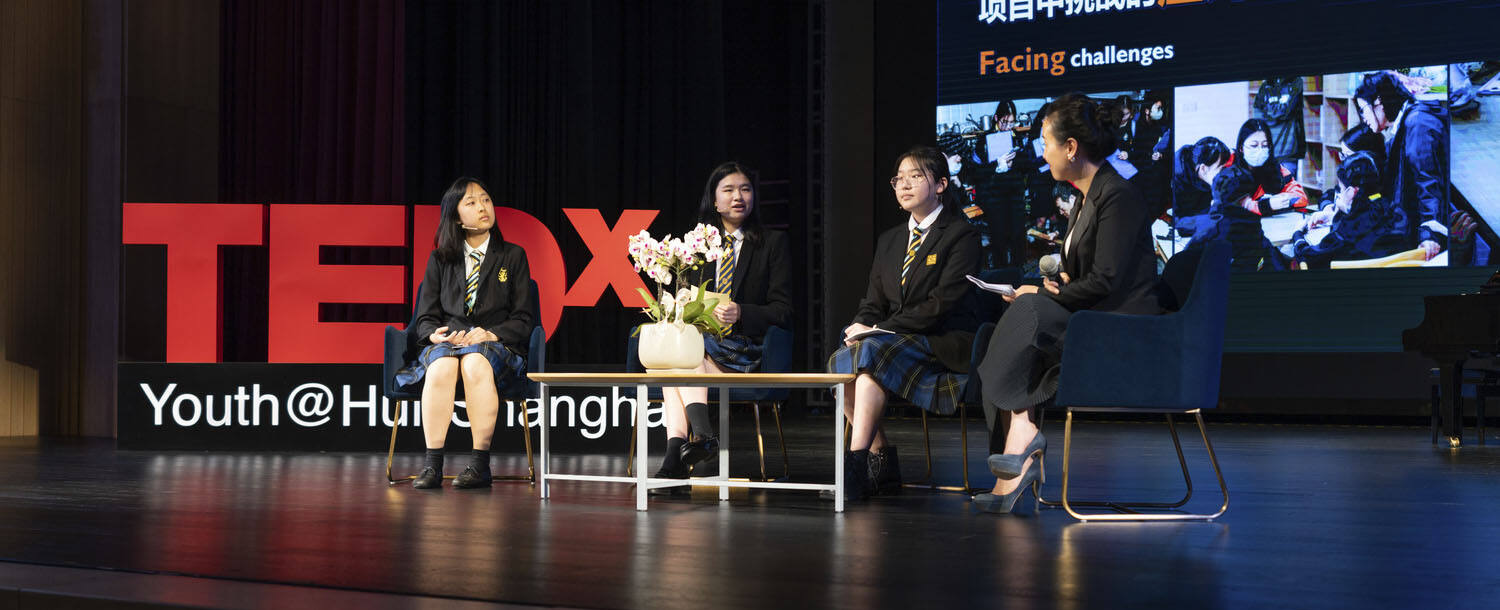
Nickle’s daughter Chelsea studied in Singapore from kindergarten to grade 3. Chelsea is now a grade 8 pupil at Huili School Shanghai.
Looking back on her daughter’s education in Singapore, Nickle is delighted that her daughter has held fast to her educational philosophy.
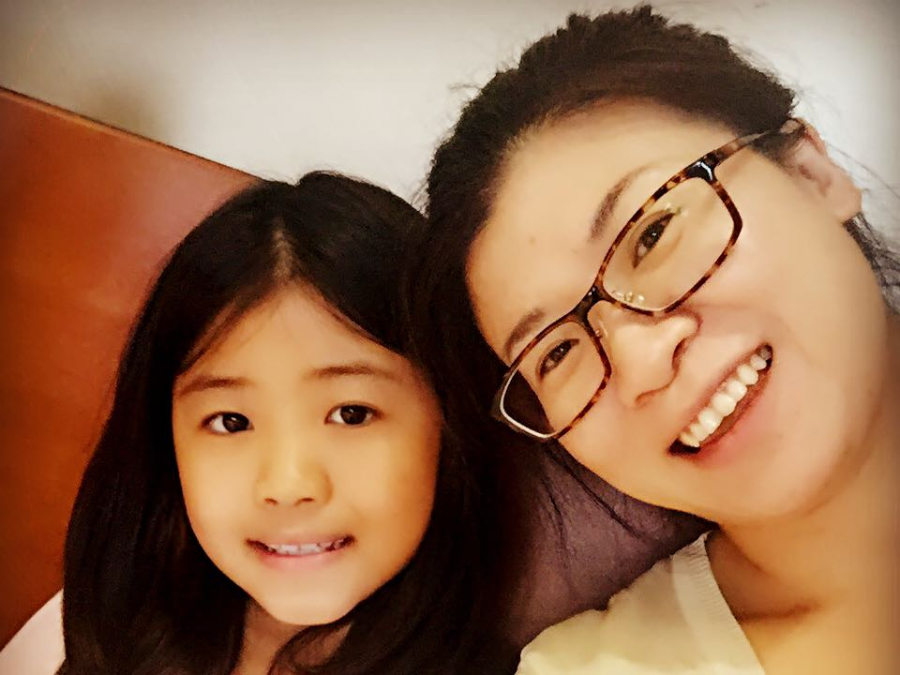
▲ Nickle and her daughter Chelsea
(Some photos in the article are provided by Nickle.)
It is important to her that Chelsea navigate life with a strong sense of who she is and where she comes from while maintaining an open mind with an international perspective.
Life, of course, never happens according to plan, and Nickle and her daughter have encountered plenty of obstacles and detours on their learning journey together, but their story is nonetheless inspiring.
I began developing my educational philosophy when I was pregnant with Chelsea. My international work experience made me realise that I wanted my daughter to learn in a flexible, child-centred, egalitarian and friendly environment with a multi-faceted assessment system.
I wanted her to maintain a close relationship with Chinese identity and to love Chinese culture. But even though her roots are in China, it is also important to me that she cultivates an international perspective.
When Chelsea was three years old, I accepted a job transfer from Shanghai to Singapore. I thought it would be a good opportunity to provide my daughter with an international education and growth environment.
She studied in Singapore from kindergarten to grade 3 and had a very 'international' experience. At the local community kindergarten, Chelsea interacted with local children and teachers, learning about Singaporean life, history and culture.
For her transition to primary school, we chose an old, small Singaporean international school where teachers can give more attention and guidance to the children at a relatively young age.
This school also takes in special children, such as those with physical, language or intellectual disabilities. This presented a unique opportunity for Chelsea to get exposure to people from many different walks of life. In the process, she learned the value of empathy, helping others and being part of a diverse community.

As Chelsea entered grade 3, we chose another international school for her. Unlike the previous small campus community, this school was like a massive aircraft carrier. It was a large campus featuring a wealth of educational resources. Teachers from all over the world broadened her horizons and provided a diverse educational experience.
Overall, Chelsea's education in Singapore was high quality. Today, she is a cheerful, healthy and a great pupil in the eyes of her teachers. I believe she gained the international outlook that I wanted for her. However, I gradually became aware of some of the shortcomings of such an education, too.
English was the first language of instruction in Singapore. Although we communicated in Chinese at home, her reading, writing and speaking abilities in the language still needed improvement.
I had other concerns too. In the Singaporean kindergartens, the national anthem is sung every morning. It was still a relatively vague concept to young Chelsea, but I had a growing concern about the impact it all might have on her sense of national identity.
In Primary school, her classmates came from different countries. Children from different countries would celebrate their own cultures and share their country's history, traditions, customs with each other. But I thought these experiences were not enough to form a strong perception of her home country. Chelsea herself also became confused about her identity.
I realised that she needed a grounded environment where she could feel connected to China and its people. So we decided to return to China and educate her in home country.
We were well prepared and had a lot of conversations with our children about the possible changes in school. But the return to China went less smoothly than expected.
Chelsea had not been educated in the Chinese system, making it hard to adjust. We chose an international school in Shanghai for grade 4, but this still did not help to ease her transition.

She had a tough time relating to her peers and was unaccustomed to the different assessment system. She did not understanding why marks were so valued and she became an average pupil, which damaged her self-esteem and confidence.
She had a lot of catching up to do in her studies as well. This meant studying late into the night, which she never had to do in Singapore. Chelsea was unable to showcase her talents or meet the school's requirements. She struggled and we were all anxious.
We had begun looking for a more suitable school for Chelsea. This is when we learned about Huili.
Chelsea entered Huili as a founding pupil, be we trusted the school's quality. With Wellington's reputation for high-quality teachers and educational resources, we saw a number of advantages in Huili.
Moreover, Huili's education philosophy fits with our family's. It provides a bilingual and holistic education for Chinese children while emphasising the integration of Chinese and Western cultures.
Over the past three years, I have grown even more confident in Huili. The school has always focused on its teaching, curriculum and maintaining a consistency of theory and practice. I no longer saw a conflict between being global citizen and having strong sense of Chinese identity.
I think the biggest benefit to Chelsea has been getting to know herself. Both parents and the school are responsible for facilitating this. She knows her strengths and limitations.
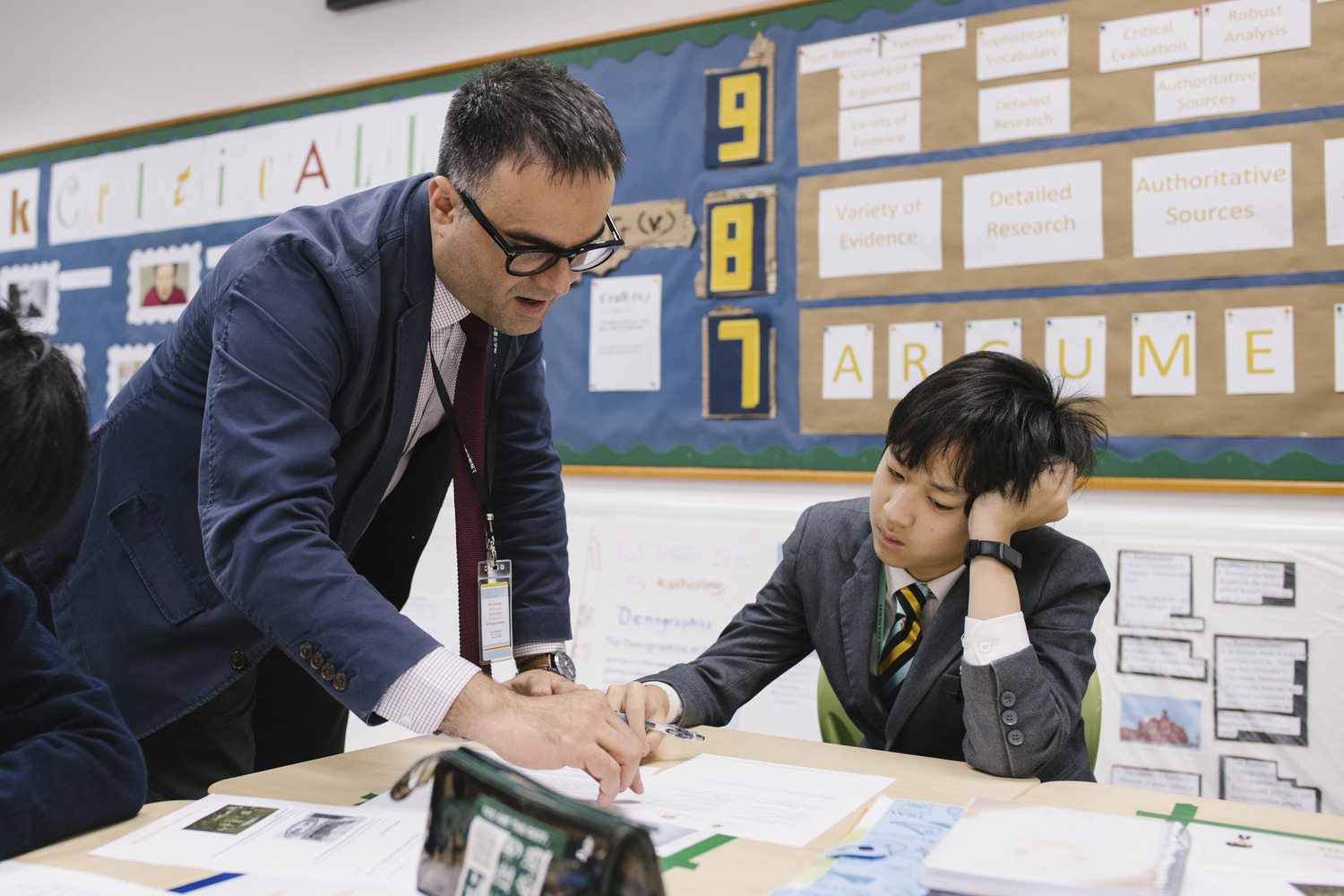
Pupils in Huili's secondary school have regular one-on-one communication with their house tutors. Through a series of in-depth conversations, the tutor gave Chelsea clear guidance on her next stage of study. For example, in specific subjects such as maths, science, English and Chinese, teaching assessment is classified into different aspects rather than simply assessing test scores.
Through the guidance of the school and teachers, my child developed a sense of 'self-knowledge about her education and growth. It was also easier for parents to identify areas where their child still must improve.
As parents, we are also better able to help plan our child’s development and support her accordingly.
Huili provides a friendly, flexible but not unstructured educational environment. Children can show their strengths and learn to improve their weaknesses.
House tutors are able to provide one-on-one guidance. For the child, these planned discussions will help her to better understand herself, define her goals, what she should do, what she needs to build up in the medium and long term.
The school not only cares about a child's learning but also various aspects of their interests and talents. It provides a platform for children with potential in many areas and gives them the opportunity to flourish in so many different ways.
This is very important for a school. When a school can do its best to provide the right platform and education for all children, it is truly committed to nurturing pupils.
Chelsea is currently in grade 8 and I have seen a remarkably positive changes in her.
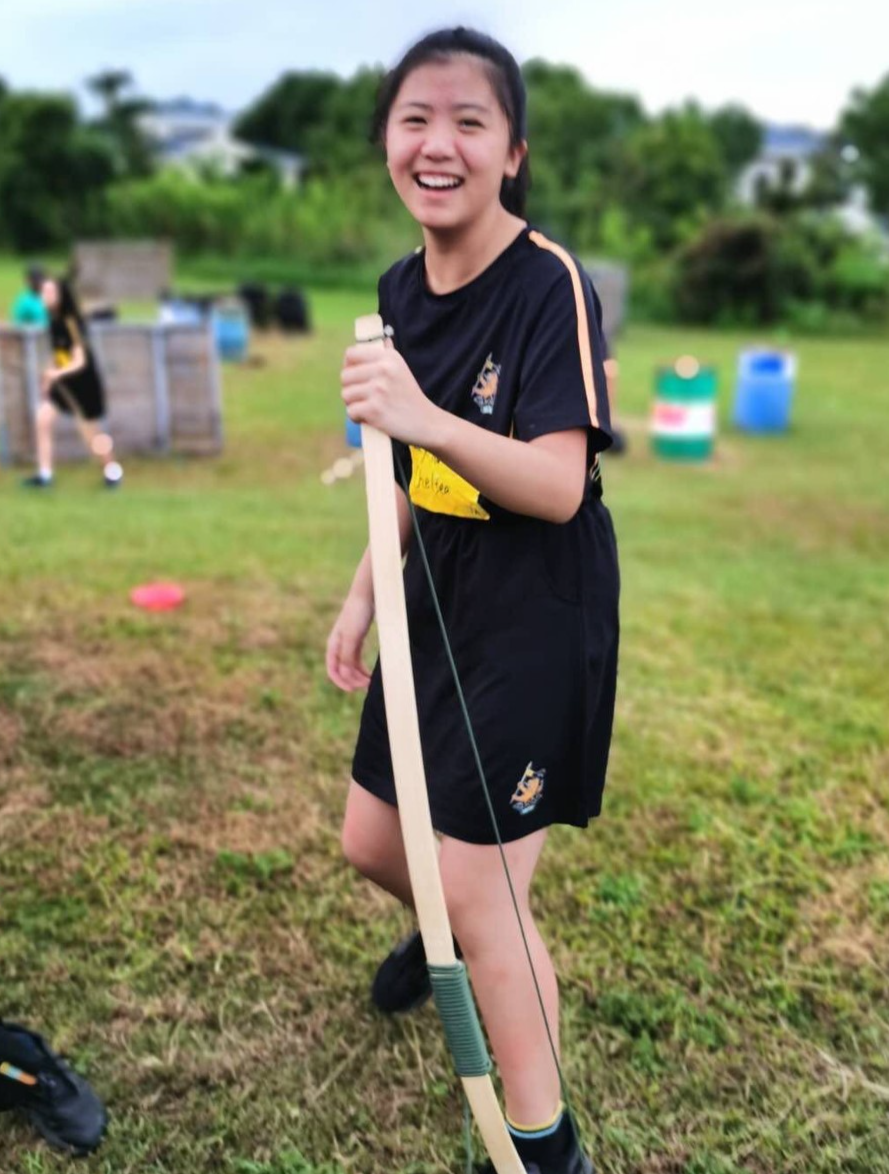
When we first returned to China, she was apprehensive to her new learning environment. After enrolling at Huili, she became more open. She is more motivated to learn. Huili gives her a sense of Chinese identity and love of our culture, but she is also developing capacity for critical and independent thinking.
I believe that with the combined efforts of the school and our family, my child will harvest good results.
Reflection on educational path
parents as partners in education
Additionally, we feel connected at Huili. There is an open line of communication between parents, teachers and pupils. It fosters a solidly reliable relationship.

The school offers parents a wide range of workshops, from youth psychology and communication skills to helping pupils improve their specific learning skills. Pupils and parents also have workshops on the same topic, so that they can communicate with each other in the same pace.
Chelsea received structured sex education when she was in primary school in Singapore. But the Chinese educational environment did not offer it. I think she needs positive guidance to understand these things, especially when she reaches adolescence and Huili provides relevant workshops for parents and pupils.
Chinese parents seldom talk with children about this topic. When the school can take the initiative to provide such resources, the right channels and methods to guide child, it is of great help to us.
I think it is important to fully trust our partnership with the school. A trustworthy home-school relationship guides a child's growth, while a mutually trusting relationship between parent and child fosters a caring family environment.
Chelsea is reaching an age when her social life is about to gain new, deeper dimensions. Whether it is making friends or decisions, I try not to judge too much, but give her advice and let her make her own choices. I want to respect her ability to be self-reliant as she finds her own direction and system of values.
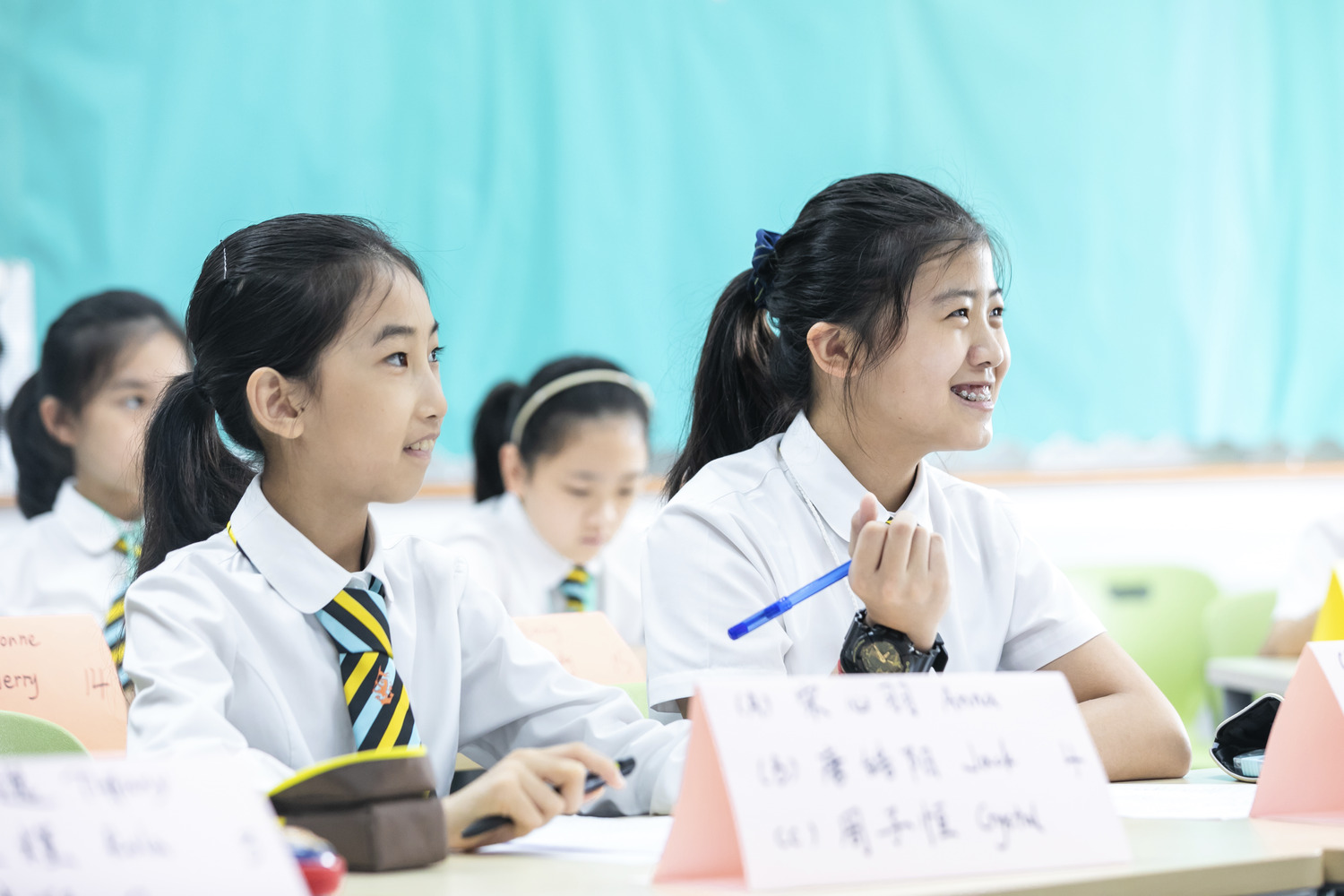
Chelsea's growth has surprised me in many ways and has given me many insights into education philosophy.
After going through different phases of her educational journey, I think we remain true to our original aspiration – cultivating her Chinese identity and international outlook.
Thanks to Nickle for being interviewed by the school and sharing us her educational philosophy and her daughter’s growth path.